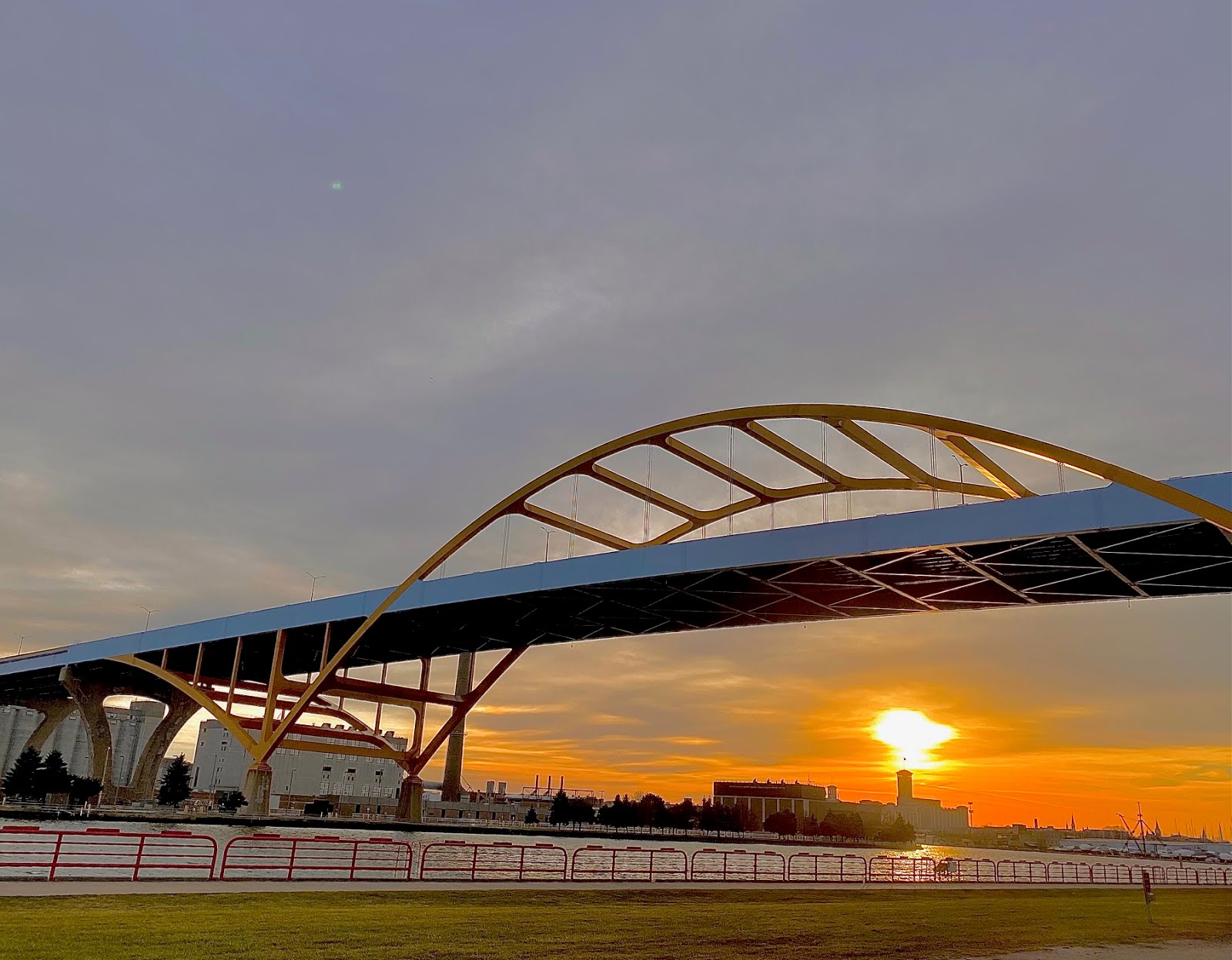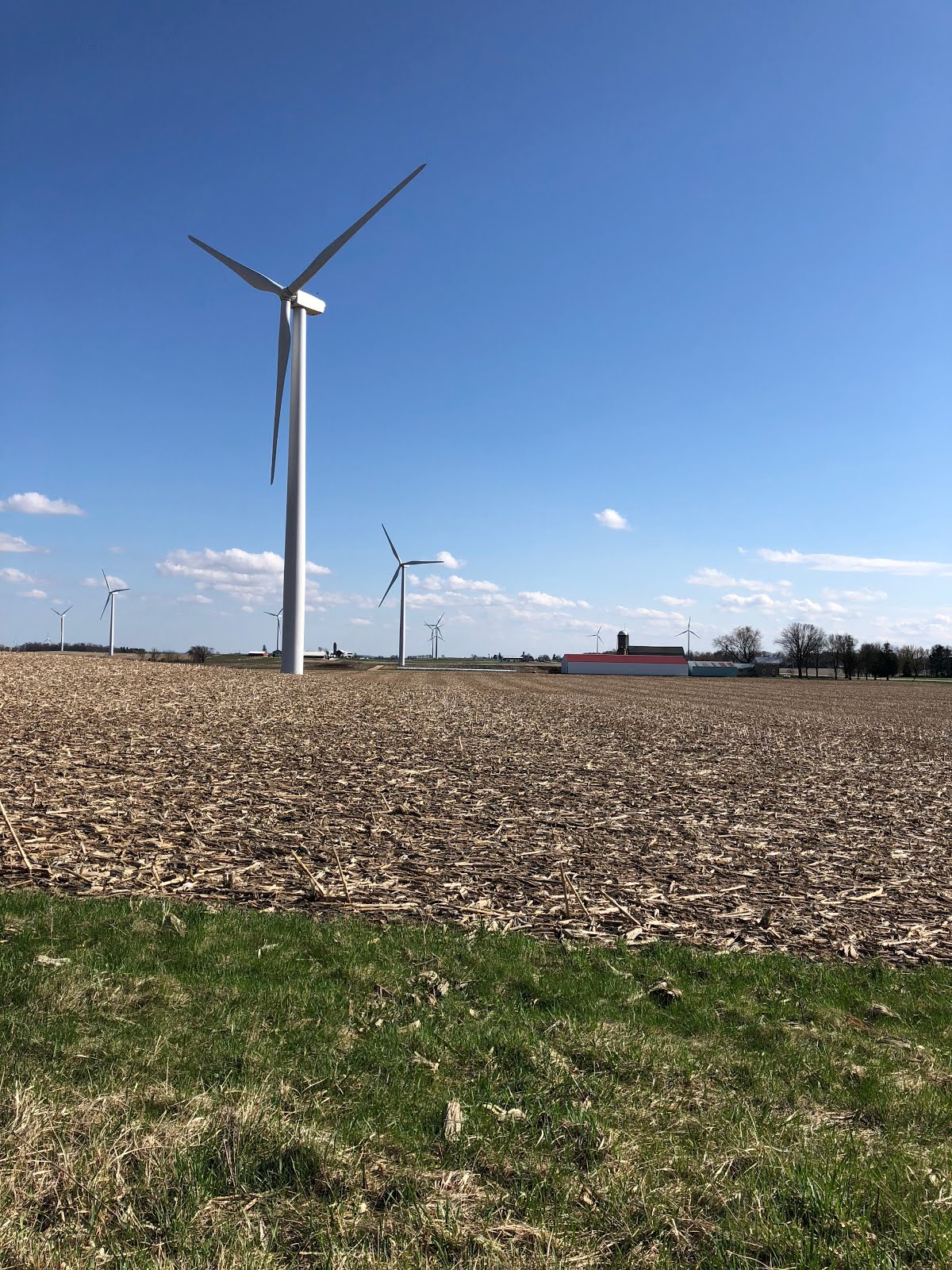For Immediate Release
July 13, 2010
Contact: Trevor Miller or Beth Pramme
414-727-5682
Feingold Highlights Opposition to Great Lakes Oil Drilling in New TV Ad
Feingold stands up to the Big Oil interests who would put profits ahead of a Wisconsin tradition
MILWAUKEE – Today, the Feingold Campaign released a new television ad that highlights Senator Russ Feingold’s strong record of protecting our Great Lakes, his opposition to oil drilling in the Great Lakes, and his work standing up to Big Oil interests who would put profits ahead of our Wisconsin lakes.
Senator Feingold helped lead efforts by the Great Lakes states’ congressional delegations to oppose opening the Great Lakes to drilling. Feingold cosponsored the Great Lakes Water Protection Act and other legislation to prohibit oil drilling in any of the Great Lakes. In addition to staunchly opposing opening the Great Lakes for oil drilling, Senator Feingold played a key role in securing congressional approval of the historic Great Lakes Compact.
Feingold also has a strong record of taking on Big Oil in Washington. He has introduced legislation that would eliminate the $75 million liability cap to ensure that oil companies are held responsible for the devastating damages that result from their mistakes.
He also supports the BP compensation fund for the victims of the Gulf oil spill.
In addition, Feingold has worked to advance the emerging water technology industry in Wisconsin, in order to improve our economy and create jobs.
His E-4 Initiative prioritizes federal funding for research-intensive water start-ups as well as small businesses in the energy sectors. The proposed legislation centers on existing programs meant to promote small business innovation and commercialization.
In the new television ad, Feingold says, “I stood up to the Big Oil interests in Washington who would put profits ahead of our Wisconsin lakes. I said ‘no’ to drilling in our Great Lakes, but one opponent, Ron Johnson, disagrees.”
Johnson, who gave a speech before the Gulf oil spill in which he said, “Big Oil [is] not evil,” has repeatedly defended the oil industry, including BP, telling the media after the Gulf oil spill, “[T]his is not the time to be beating up on those guys, quite honestly.”
News reports have also detailed Johnson’s support for oil drilling in national wildlife areas and his opposition to more caution before undertaking new oil-drilling projects in light of the worst oil spill disaster in American history. Johnson also opposes the BP compensation fund for victims of the Gulf oil spill.
One month ago, Johnson was asked by the media, "Would you support drilling like in the Great Lakes, for example, if there was oil found there?"
Johnson said, “Yeah. You know, the bottom line is that we are an oil-based economy. There’s nothing we’re going to do to get off of that for many, many years, so I think we have to just be realistic and recognize that fact. And I think we have to get the oil where it is…”
Last week, with ongoing media coverage of the BP oil spill, and after weeks of delaying the financial disclosures required, it was revealed by the media that Johnson has invested as much as $315,000 with BP, $50,001 to $100,000 in Exxon Mobil and $15,001 to $50,000 in Occidental Petroleum Corp.
Wisconsin relies on the Great Lakes for everything from food to jobs and from power to recreation. According to the Wisconsin Department of Natural Resources, 1.6 million Wisconsin residents get their fresh water directly from the Great Lakes.
On July 12, the National Oceanic and Atmospheric Administration (NOAA) reported the area of the Gulf affected by the oil sheen is 84,101 square miles – an area nearly the same size as all five Great Lakes combined.
Feingold voted for the American Recovery and Reinvestment Act, which has funded maintenance of Wisconsin’s harbors and canals, restored fish and wildlife habitats, and reduced pollution, including clean water and drinking water revolving loan funds, the Ashland NFWCO Fish Passage Program, Fox River dam infrastructure improvements, the Fox River navigation system’s lock keeper houses, improvements to the Sturgeon Bay Ship Canal and harbor, and the Kewaunee and Manitowoc harbor dredging projects.
Feingold Says “No” to Oil Drilling in Our Great Lakes and Stands Up to Big Oil
Feingold said “no” to oil drilling in the Great Lakes and he strongly opposes handing over our Great Lakes to oil companies for drilling. He was an original cosponsor of the Great Lakes Water Protection Act, S. 1033 6/13/2001, and a leader in the fight to oppose drilling for oil and gas in the Great Lakes. In 2001, Feingold cosponsored the Great Lakes Water Protection Act, which gave states incentives to forbid new leases for drilling in the Great Lakes—an action Wisconsin had taken but neighboring Michigan had not, while threatening to allow drilling to proceed.
Feingold and his colleagues acted decisively, and in October 2001, he cosponsored a successful amendment to the Energy and Water Development Appropriations Act of 2002 to forbid drilling for oil and gas in the Great Lakes until a study could be completed on its potentially devastating impacts. This occurred just weeks before 30-50 new leases for drilling could have been announced for exploration on Lakes Michigan and Huron.
This prohibition was extended starting in 2003, with Feingold urging his colleagues to support language in the Consolidated Appropriations Resolution for Fiscal Year 2003.
In keeping with his long tradition of fiscal responsibility, Senator Feingold included a provision in his Control Spending Now Act to end taxpayer-funded giveaways to Big Oil and permit the federal government to charge them for administrative costs.
The Act also includes a provision to end giveaways for gas and geothermal energy production on public lands. Senator Feingold’s Control Spending Now Act, introduced this Congress, would save taxpayers roughly one-half trillion dollars over 10 years.
Big Oil currently holds leases on more than 60 million acres of public land and water – an area larger than Wisconsin and Lake Michigan combined – with an estimated 100 billion gallons of oil that they choose not to utilize for production.
Since Big Oil refuses to drill on the land that they already have leases for, Senator Feingold introduced legislation to require Big Oil to “Use It or Lose It.” This bill would spur oil companies to explore on lands they currently lease before receiving any new leasing permits. Other industries, including the coal industry, are already held to this standard, and Feingold’s “Use It or Lose It” bill would end the special treatment for Big Oil.
Feingold Protects Great Lakes for Future Generations
Feingold played a key role in securing congressional approval of the historic Great Lakes Compact, which was recently passed into law. Despite the difficulty of getting any legislation through the U.S. Senate, as soon as the bill passed through each of the Great Lakes region’s state houses and was introduced in the U.S. Senate, Feingold held the first and only U.S. Senate hearing on the bill – as chairman of the Judiciary Committee’s Constitution Subcommittee – and worked to secure its passage through the Senate in a matter of days.
The Great Lakes Compact, an historic agreement among the eight Great Lakes states and the Canadian provinces of Ontario and Quebec, regulates new water withdrawals and diversions that threaten lake levels and could destroy a major natural resource that Wisconsin counts on for everything from food to jobs and from power to recreation.
Feingold authored the Clean Water Restoration Act, which would improve the quality of Great Lakes water by undoing two damaging Supreme Court decisions that undermined protections for wetlands and streams—the legislation was deemed the top legislative priority for sportsmen by Field and Stream magazine.
Feingold is a champion of the Great Lakes Legacy Act, supporting both its enactment in 2002 and its 2008 reauthorization, which is addressing the most polluted industrial sites still plaguing the Great Lakes and communities in Wisconsin.
Ron Johnson Has Defended Big Oil and Said “We have to get the oil where it is.”
Before the BP oil spill in the Gulf, Johnson said in a March 21, 2010, speech that, “Big Pharma and Big Oil are not evil.” [Ron Johnson speech at Winnebago County Republican Party, Oshkosh, March 21, 2010]
Johnson said, “[T]he first thing that came to my mind,” when he heard about the BP oil spill, was to support oil drilling in national wildlife areas, saying: “Wouldn’t it be far better if we were drilling in ANWR?” [The Ed Morrissey Show: Ron Johnson, 6/2/2010]
Johnson also came to the defense of Big Oil, telling national right-wing talk radio host Ed Morrissey, “This is not the time to be beating up on those guys, quite honestly.” [The Ed Morrissey Show: Ron Johnson, 6/2/2010]\
In the wake of the worst oil spill in U.S. history, the AP reported: “When asked whether the Gulf spill should prompt more caution before undertaking new oil-drilling projects, Johnson said no.” [“Johnson, Westlake Want Oil Drilling In Alaska,” Associated Press, 6/5/2010]
When Johnson was asked by the media, "Would you support drilling like in the Great Lakes, for example, if there was oil found there?" Johnson said, “I think we have to get the oil where it is.” [WisPolitics, Interview, 6/14/10]
Johnson opposes the BP compensation fund for the victims of the Gulf oil spill. As reported by the Capital Times: "Johnson climbed in bed with BP. The wealthy candidate derided the Obama administration's efforts to get money to pay for claims that are all but certain to exceed $20 billion ‘very troubling.’"Capital Times, 6/22/2010]
After delaying the release of his financial interests, the media revealed that Johnson has as much as $315,000 of investments with BP and $50,001 to $100,000 in Exxon Mobil Corp., and $15,001 to $50,000 in Occidental Petroleum Corp. [Associated Press, 7/10/ 2010]
Yesterday the Huffington Post reported: “At the same time he’s been a vocal advocate for continued and even accelerated oil and gas exploration, going so far as to express an openness to drilling in the Great Lakes. ‘The bottom line is we are an oil-based economy,’ he told the site WisPolitics in mid-June, when asked about drilling in the Great Lakes. ‘There's nothing we're gonna do to get off of that for many, many years. I think we have to be realistic and recognize that fact and, you know, I, I think we have to, get the oil where it is.’” [Huffington Post, 7/12/2010]
Recognition of Feingold’s Record
The League of Conservation Voters recognizes Feingold as having one of the best lifetime voting records of any current U.S. Senator. The Wisconsin Wildlife Federation and National Wildlife Federation have honored him for his efforts to protect water quality and fight for wetlands protections.
The State of Wisconsin honored Feingold for his strong support of State Wildlife Grants and he was awarded the Clean Water Champion Award by the Clean Water Network for his leadership on the Clean Water Restoration Act.
Feingold has also received the "Mr. Smith Goes to Washington" Award from Taxpayers for Common Sense for his work with Republican Congressman Tom Petri (R-Fond du Lac) on reducing the deficit through environmental protection.
When I look at Lake Michigan, I see a resource that Wisconsin needs to protect for future generations.
That’s why I stood up to the Big Oil interests in Washington who would put profits ahead of our Wisconsin lakes.
I said “no” to drilling in our Great Lakes, but one opponent, Ron Johnson, disagrees.
He’s willing to hand over the Great Lakes to the oil companies, threatening Wisconsin’s economy, and a way of life for generations of Wisconsin families.
We won’t let that happen.
I’m Russ Feingold and I approve this message because a Wisconsin tradition is worth fighting for.
###
![]()
![]()








No comments:
Post a Comment